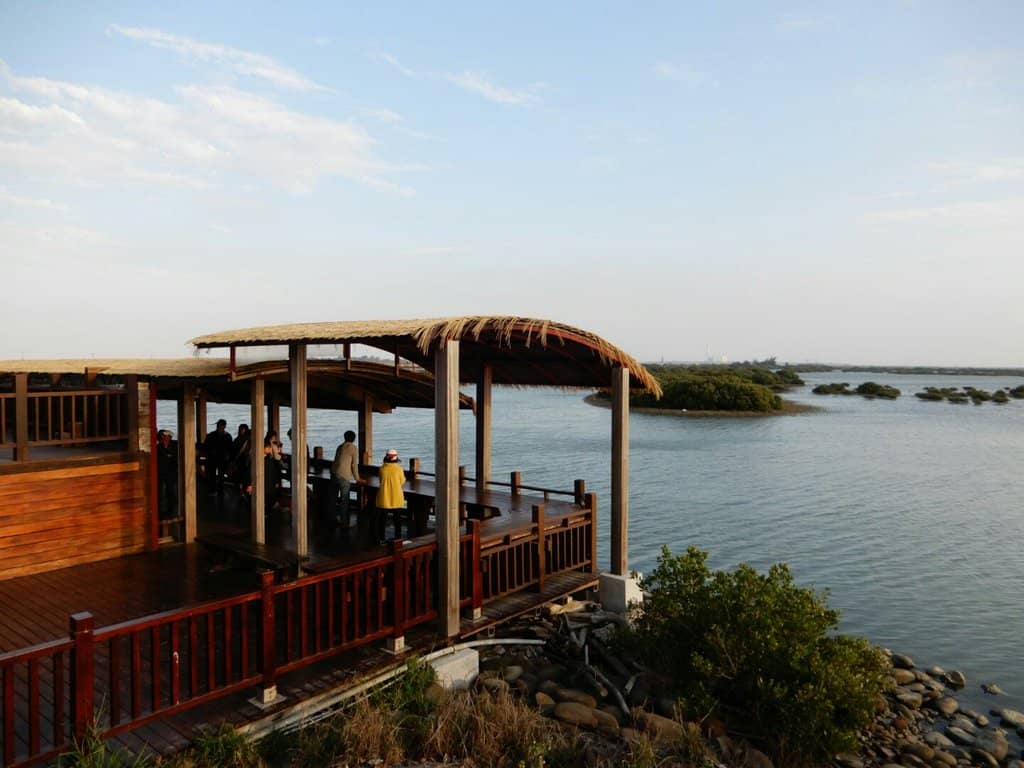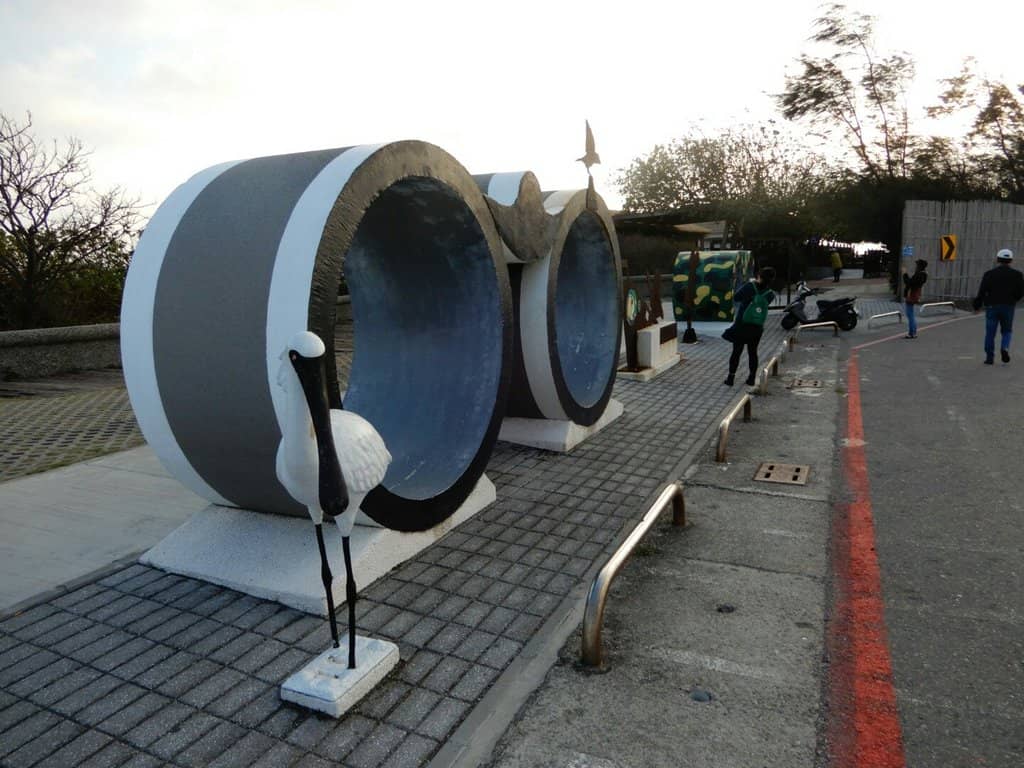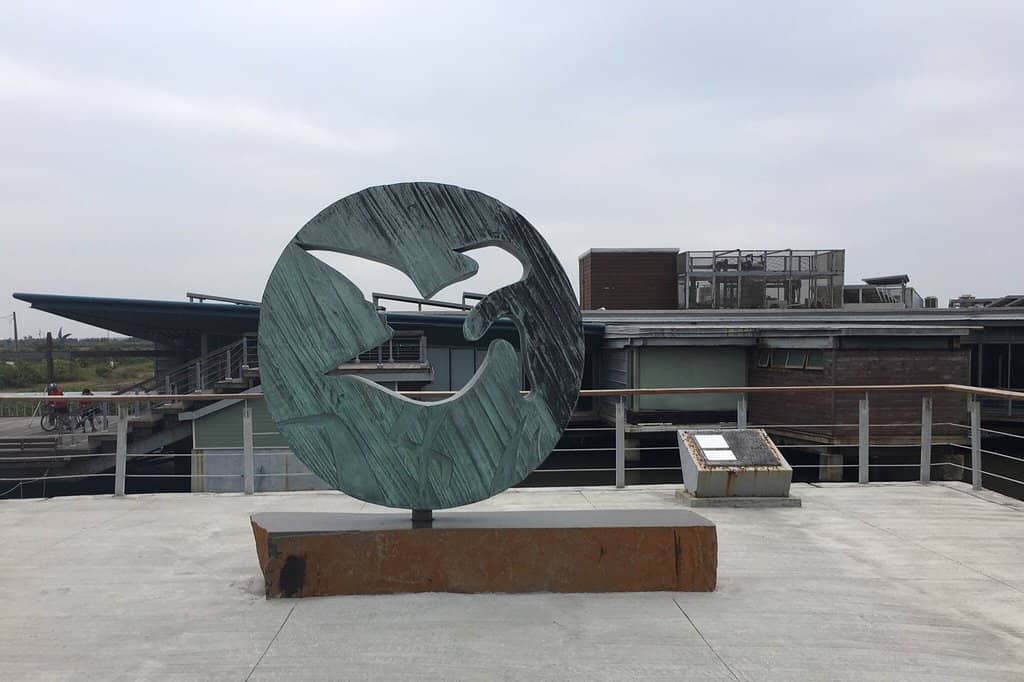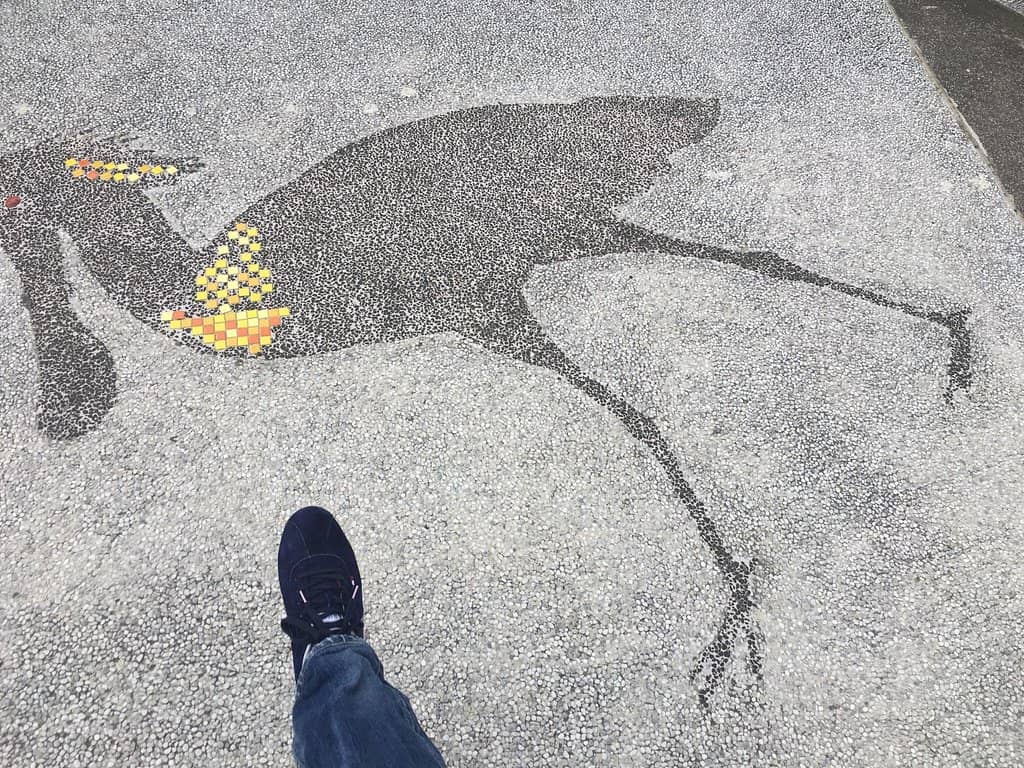
Black-faced Spoonbill Ecology Center Cigu
A vital sanctuary for the endangered Black-faced Spoonbill, driven by passionate volunteers transforming a disused school into a conservation hub.

Highlights
Must-see attractions

Social
From TikTok & Reddit
Best Time
Peak bird activity

Black-faced Spoonbill Ecology Center Cigu
Best Time
Peak bird activity

Highlights
Must-see attractions
A vital sanctuary for the endangered Black-faced Spoonbill, driven by passionate volunteers transforming a disused school into a conservation hub.
"Commendable work by volunteers protecting nature and animals, building nests for young terns."

Binoculars are a must! 🔭
Bring your own binoculars for the best bird-watching experience. Essential for spotting distant spoonbills.
Support the volunteers 🙏
The center relies on volunteers. Learn about their conservation efforts and consider offering support.

Highlights
Discover the most iconic attractions and experiences

Black-faced Spoonbill Sanctuary
Main viewing areas
Witness the majestic Black-faced Spoonbill in its natural habitat. A truly special sight for bird lovers.

Abandoned Salt Flats
Adjacent to the center
Observe crystallized salt and unique fish holes, showcasing the area's ecological transformation.

Reclaimed Primary School
Conservation base
See how a disused school is now a hub for bird conservation and outdoor education.
Plans like a pro.
Thinks like you
Planning Your Visit
Respect the Habitat
Volunteer-Driven Efforts
Best Times
Insider Tips
from TikTok, Instagram & Reddit
Binoculars are a must! 🔭
Bring your own binoculars for the best bird-watching experience. Essential for spotting distant spoonbills.
Support the volunteers 🙏
The center relies on volunteers. Learn about their conservation efforts and consider offering support.
Wear comfortable shoes 👟
You'll be doing some walking around the salt flats and viewing areas. Comfortable footwear is key.
Check for events 🗓️
The center hosts irregular outdoor teaching and activities. Check their schedule beforehand.
Tips
from all over the internet
Binoculars are a must! 🔭
Bring your own binoculars for the best bird-watching experience. Essential for spotting distant spoonbills.
Support the volunteers 🙏
The center relies on volunteers. Learn about their conservation efforts and consider offering support.
Wear comfortable shoes 👟
You'll be doing some walking around the salt flats and viewing areas. Comfortable footwear is key.
Check for events 🗓️
The center hosts irregular outdoor teaching and activities. Check their schedule beforehand.
What Travellers Say
Reviews Summary
Visitors commend the dedicated volunteers and their tireless efforts in protecting the Black-faced Spoonbill and its habitat. The transformation of a disused school into a conservation base is particularly praised. While the natural setting is appreciated, some visitors note the basic facilities and the need for personal transport to access the site.
"The hard work of the volunteers is commendable. They are advocates for protecting nature and animals. This time, they are helping build a nest for the young terns. I hope they can have a successful birth and grow up to be soaring birds."
Eddie Huang
"2023/4/29
Crystallized salt and fish holes have begun to appear in the abandoned salt flats next to it."
Fang-Hua Wu
"Reuse of abandoned primary schools
For outdoor teaching in nearby remote schools
Irregular activities
Lively and bustling coastal villages"
倉田紗南
What People Like
What People Dislike
Frequently Asked Questions
🚇 🗺️ Getting There
The center is located in the Qigu district of Tainan City. While popular with fishermen, it's best accessed by car or scooter. Public transport options can be limited, so check local bus routes in advance if relying on them.
Yes, there is typically parking available for visitors. It's advisable to arrive earlier during peak seasons to secure a spot.
Renting a scooter is a popular and convenient option for exploring the Qigu district and reaching various birdwatching spots.
🎫 🎫 Tickets & Entry
Entry to the center is generally free, as it's a conservation area run by dedicated volunteers. Donations are often welcomed to support their efforts.
As a natural habitat and volunteer-run center, hours can be flexible. It's best to visit during daylight hours, especially in the morning or late afternoon for optimal bird activity.
The center is accessible year-round, but the best times to see Black-faced Spoonbills are during their migratory seasons. The volunteers are active year-round in conservation efforts.
🎫 🧭 Onsite Experience
The main attraction is the Black-faced Spoonbill, an endangered species. You can also spot various other waterbirds and migratory species depending on the season.
While formal guided tours might be irregular, the passionate volunteers are often happy to share information about their conservation work and the birds. Engaging with them is highly recommended.
Facilities are basic, reflecting its conservation focus. Expect viewing areas and information provided by volunteers. Restrooms might be available, but it's wise to be prepared.
The abandoned salt flats are part of the ecological area. Stick to marked paths and be mindful of the terrain, which can be uneven and wet.
📸 📸 Photography
The main viewing platforms offer good vantage points. The salt flats also provide unique photographic opportunities with the birds and the landscape. Patience is key for capturing great shots.
A telephoto lens is highly recommended for capturing clear shots of the birds from a distance. A tripod can also be helpful for stability.
The primary rule is to respect the birds and their habitat. Avoid using flash photography that might disturb them, and maintain a safe distance.
For Different Travelers
Tailored advice for your travel style
👨👩👧 Families with Kids
Encourage your children to observe the birds from a distance and discuss what they see. The volunteers are often happy to share simple facts about the birds, making the visit more engaging. Remember to bring snacks and drinks, as facilities are basic. Comfortable shoes are a must for exploring the salt flats and viewing areas.
🐦 Birdwatching Enthusiasts
Bring your best binoculars and telephoto lenses to make the most of your visit. The volunteers' knowledge can also be invaluable; don't hesitate to ask them about recent sightings or bird behavior. The reclaimed salt flats provide unique photographic perspectives.
Deep Dives
In-depth insights and expert knowledge
The Importance of the Black-faced Spoonbill
Volunteers at the center are dedicated to protecting the spoonbills' habitat, which includes the unique salt flats and surrounding wetlands. Their efforts involve monitoring bird populations, maintaining nesting sites, and educating the public about the importance of conservation. The transformation of a disused primary school into a conservation base highlights their commitment and ingenuity.
Visitors have the rare opportunity to witness these magnificent birds up close, thanks to the tireless work of the conservationists. It's a chance to connect with nature and understand the challenges faced by endangered species, reinforcing the value of dedicated conservation efforts.
Conservation Through Community
This collaborative spirit extends to outdoor teaching for nearby remote schools, integrating environmental education with practical conservation work. The center aims to foster a deeper appreciation for nature and the delicate ecosystems that support species like the Black-faced Spoonbill. Visitors are encouraged to learn about these initiatives and understand the ongoing efforts to preserve this precious land.
By visiting the center, you not only get to observe incredible wildlife but also contribute to a meaningful cause. The enthusiasm of the volunteers creates a lively and engaging atmosphere, making the experience both educational and inspiring. It’s a place where people come together to make a tangible difference for wildlife.


Social
from TikTok, Instagram & Reddit